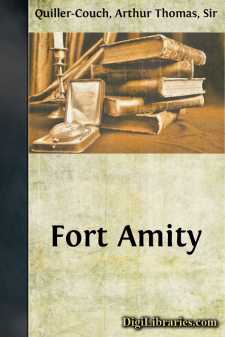Categories
- Antiques & Collectibles 13
- Architecture 36
- Art 48
- Bibles 22
- Biography & Autobiography 813
- Body, Mind & Spirit 142
- Business & Economics 28
- Children's Books 17
- Children's Fiction 14
- Computers 4
- Cooking 94
- Crafts & Hobbies 4
- Drama 346
- Education 46
- Family & Relationships 57
- Fiction 11829
- Games 19
- Gardening 17
- Health & Fitness 34
- History 1377
- House & Home 1
- Humor 147
- Juvenile Fiction 1873
- Juvenile Nonfiction 202
- Language Arts & Disciplines 88
- Law 16
- Literary Collections 686
- Literary Criticism 179
- Mathematics 13
- Medical 41
- Music 40
- Nature 179
- Non-Classifiable 1768
- Performing Arts 7
- Periodicals 1453
- Philosophy 64
- Photography 2
- Poetry 896
- Political Science 203
- Psychology 42
- Reference 154
- Religion 513
- Science 126
- Self-Help 84
- Social Science 81
- Sports & Recreation 34
- Study Aids 3
- Technology & Engineering 59
- Transportation 23
- Travel 463
- True Crime 29
Sort by:
THE OMNIBUS. It was not so much a day as a burning, fiery furnace. The roar of London's traffic reverberated under a sky of coppery blue; the pavements threw out waves of heat, thickened with the reek of restaurants and perfumery shops; and dust became cinders, and the wearing of flesh a weariness. Streams of sweat ran from the bellies of 'bus-horses when they halted. Men went up and down...
more...
CHAPTER I. MALBROUCK S'EN VA-T'EN GUERRE. "So adieu, Jack, until we meet in Quebec! You have the start of us, report says, and this may even find you drinking his Majesty's health in Fort Carillon. Why not? You carry Howe, and who carries Howe carries the eagles on his standards; or so you announce in your last. Well, but have we, on our part, no vexillum? Brother Romulus presents...
more...
OCEANUS I My Dear Violet,—So you "gather from the tone of two or three recent letters that my spirit is creeping back to light and warmth again"? Well, after a fashion you are right. I shall never laugh again as I used to laugh before Harry's death. The taste has gone out of that carelessness, and I turn even from the remembrance of it. But I can be cheerful, with a cheerfulness which...
more...
IN A COLLEGE GARDEN. Senex. Saye, cushat, callynge from the brake, What ayles thee soe to pyne? Thy carefulle heart shall cease to ake When dayes be fyne And greene thynges twyne: Saye, cushat, what thy griefe to myne? Turtur. Naye,...
more...
PROLOGUE. "For what is a man profited, if he shall gain the whole world and lose his own soul? or what shall a man give in exchange for his soul?" At Surat, by a window of his private office in the East India Company's factory, a middle-aged man stared out upon the broad river and the wharves below. Business in the factory had ceased for the day: clerks and porters had gone about their own...
more...
CHAUCER March 17, 1894. Professor Skeat's Chaucer. After twenty-five years of close toil, Professor Skeat has completed his great edition of Chaucer. It is obviously easier to be dithyrambic than critical in chronicling this event; to which indeed dithyrambs are more appropriate than criticism. For when a man writes Opus vitæ meæ at the conclusion of such a task as this, and so lays down his...
more...
THE MASTER OF ST. HOSPITAL. 'As poor, yet making many rich; as having nothing, and yet possessing all things…' The Honourable and Reverend Eustace John Wriothesley Blanchminster, D.D., Master of St. Hospital-by-Merton, sat in the oriel of his library revising his Trinity Gaudy Sermon. He took pains with these annual sermons, having a quick and fastidious sense of literary style. "It...
more...
CHAPTER I. I FIND MYSELF A FOUNDLING. My earliest recollections are of a square courtyard surrounded by high walls and paved with blue and white pebbles in geometrical patterns—circles, parallelograms, and lozenges. Two of these walls were blank, and had been coped with broken bottles; a third, similarly coped, had heavy folding doors of timber, leaden-grey in colour and studded with black...
more...
PROLOGUE. Good wine needs no bush; but this story has to begin with an apology. Years ago I promised myself to write a treatise on the lost Mayors of Cornwall—dignitaries whose pleasant fame is now night, recalled only by some neat byword or proverb current in the Delectable (or as a public speaker pronounced it the other day, the Dialectable) Duchy. Thus you may hear of "the Mayor of Falmouth,...
more...
CHAPTER I AT THE SIGN OF THE GOOD SAMARITAN "That it may please Thee to preserve all that travel by land or by water . . . all sick persons, and young children."—THE LITANY. "I love my love with a H'aitch, because he's 'andsome—" Tilda turned over on her right side—she could do so now without pain— and lifting herself a little, eyed the occupant of the next bed....
more...











